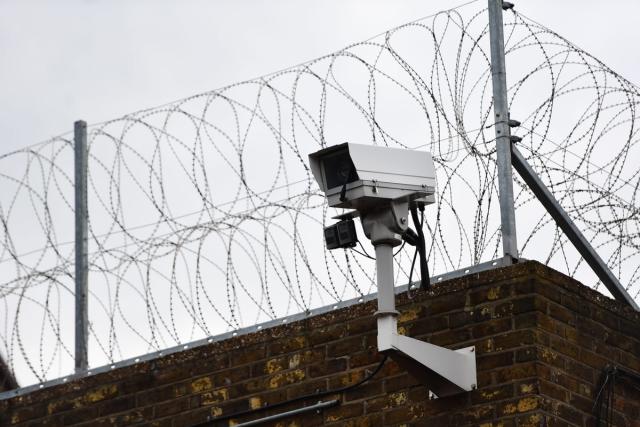Amari Lindon Ward, a 31-year-old man, was released on Tuesday, September 10th. He was let out early because jails in England and Wales were too full. The government let some prisoners go free a bit earlier than planned. This is called an “early release scheme.”
But just hours after leaving prison, Ward allegedly sexually assaulted a woman at a train station in Sittingbourne, Kent. The police arrested him in London. Now, he has to go to court. Ward was charged with sexual assault. He appeared in front of a judge in a magistrate court. The judge said he must go to a crown court next month. Until then, he has been recalled to prison. This means he has to go back to jail.
Click the link to watch the full news report:
Why Are Some Prisoners Leaving Jail Sooner?
The government’s plan is called SDS40. It lets some prisoners out after they have served 40% of their time. Usually, they have to serve 50% of their time. The government said it had to do this. They said the prisons were in crisis and on the brink of collapse. If they didn’t let some people out, there wouldn’t be enough space for new prisoners. The courts could not hold trials and the police to make arrests.
But not everyone can leave prison early. People who commit grave crimes like terrorism or sexual assault cannot use this scheme. They must stay in jail longer if serving more than four years for a violent offence. The government also said it would not let out people involved in the riots this summer.

What do people think about this?
This early-release scheme has sparked significant public concern. Many fear it could jeopardise public safety. There’s a worry that releasing offenders early, especially those with a history of violence, increases the risk of them re-offending. Critics argue that while the government inherited an overcrowded prison system in crisis, these emergency measures could endanger the public.
The Ministry of Justice, in charge of prisons, said they had “no choice” but to introduce emergency measures, releasing some prisoners a few weeks or months early while excluding some offences and imposing strict licence conditions. They said they are watching the people who are let out early. If they break the rules, they will go back to jail.
Is this the first problem with the scheme?
No, it’s not. Since the scheme started, other people have been recalled to prison, too. One person was sent back after only 36 hours! They didn’t follow the rules they were given when they were let out. Some people think there will be more problems like this. They say it’s inevitable when you let out so many prisoners simultaneously.
Public Fury Over Prisoner Celebrations
Pictures emerged of some prisoners being greeted by their friends with celebrations when they left the prison. Some were even sprayed with champagne! This made some people angry. They thought it was wrong to celebrate people who had committed crimes being let out of jail.
Ward’s Alleged Crime Sparks Debate Over Prison Scheme
Amari Lindon Ward will go to court. The court will decide if he is guilty of the crime. If he is guilty, he will be punished. This situation has made many people think about the early release scheme. They are asking if it is a good idea. They want to know if it is safe for people to be let out of prison early.

The Bottom Line
This case shows us that the early release scheme, called SDS40, can have serious problems. Amari Lindon Ward, who was let out early, is now accused of sexually assaulting a woman. This is scary because it makes us wonder if the government’s plan to let some prisoners out early is putting people at risk.
The government says it had to do this because prisons are overcrowded and on the brink of collapse. They say they are watching the people who are released early, but some have already broken the rules and been sent back to jail.
This is a tricky situation. We need to keep people safe, but we also need to ensure that prisons aren’t overcrowded. It’s important to consider everyone involved and find a solution that works for everyone.
Thank you for reading, click the link below to read more of our articles:
https://insidesuccessmagazine.com/category/trending
Inside Success presents to you our digital platform, created to inform, inspire and empower 16-35s. Through our articles, we aim to bring bold ideas, fresh voices and real conservations to life. From mental health advice, to career information, and fashion tips to social issue debates, Inside Success is proud to have created a platform that has something to cater to everyone.




Leave a Reply
You must be logged in to post a comment.